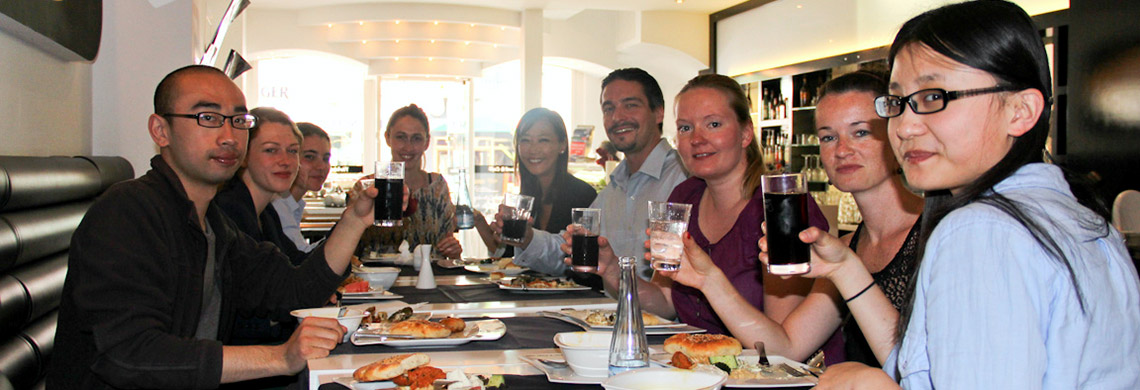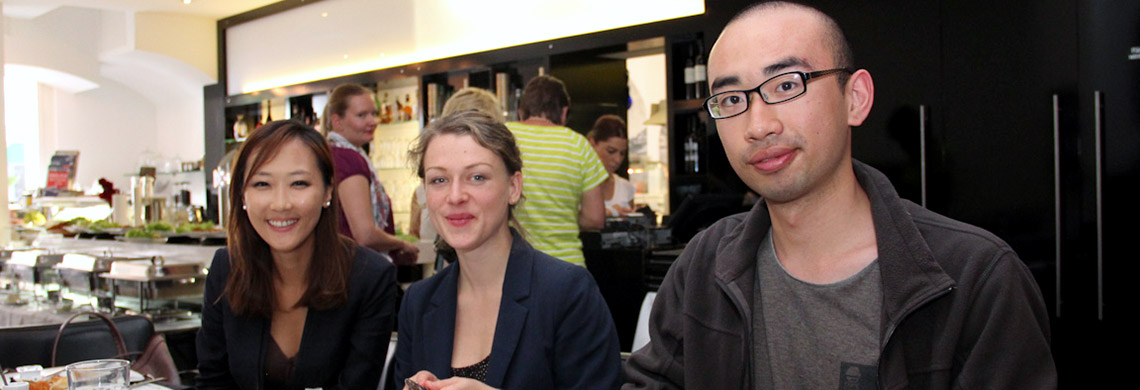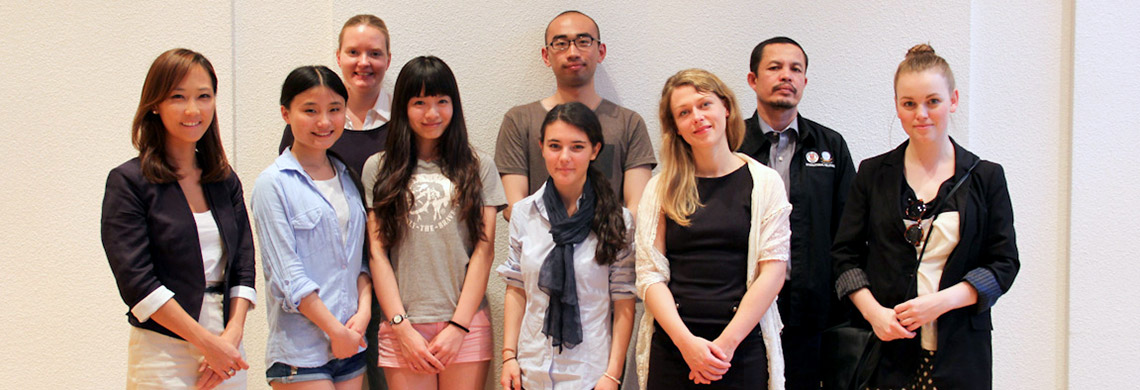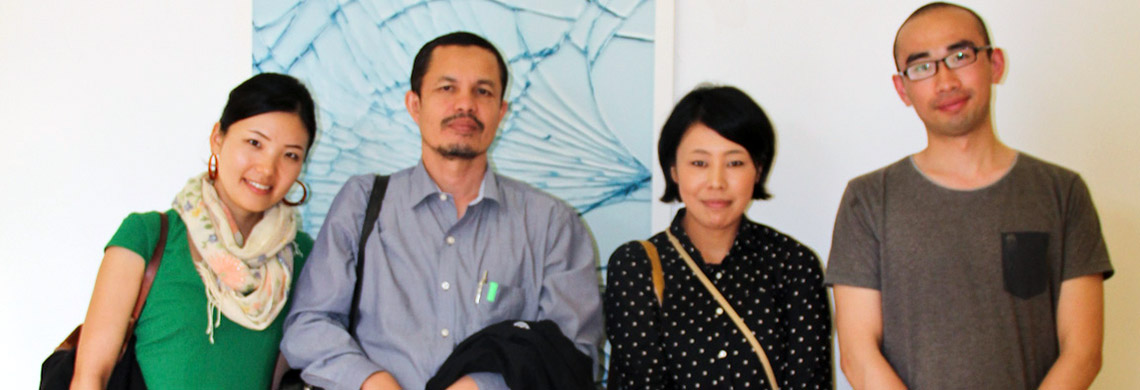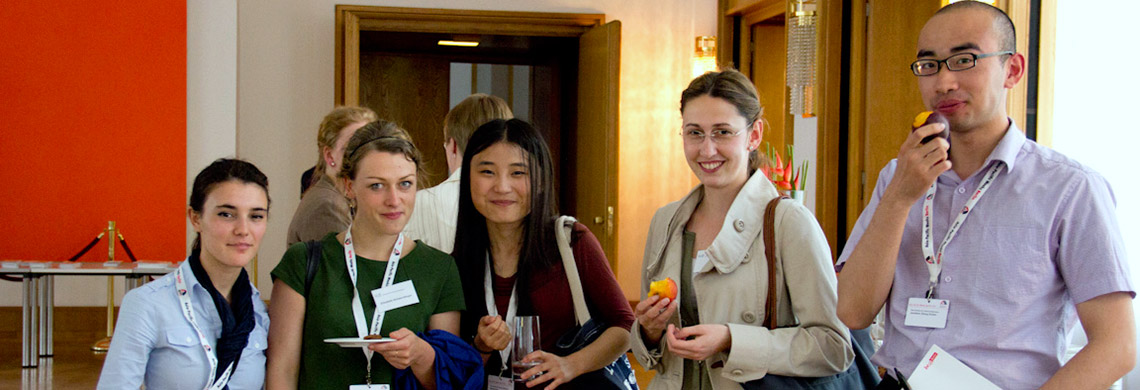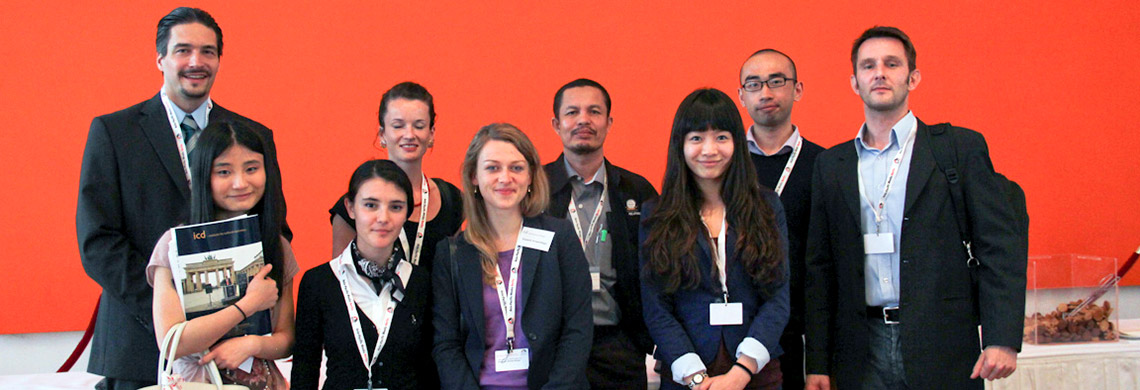Symposium on Cultural Diplomacy in the Asia Pacific
“The Application of Cultural Diplomacy in Fostering Relations within the Asia Pacific”
(Berlin; June 5th - 7th, 2013)

Symposium Overview
 With the ever increasing significance of successful global and regional governance, the International Symposium on Cultural Diplomacy in the Asia Pacific will focus on the challenges and opportunities that the South Pacific region faces as a potential regional power in the international community.
With the ever increasing significance of successful global and regional governance, the International Symposium on Cultural Diplomacy in the Asia Pacific will focus on the challenges and opportunities that the South Pacific region faces as a potential regional power in the international community.The International Symposium will, through a series of panel discussions, lectures, and debates, examine the issues that are currently defining the internal development of the region. By providing the platform for experts, academics, and world leaders involved in this field to come together, comprehensive alliances and best practices will be developed, thus promoting increased cooperation and interdependence in the region. The Conference will furthermore engage Cultural Diplomacy as a means of uniting the varying sectors of society in order to create a joint collaboration for the promotion of the region, as well as recognize the capabilities of Cultural Diplomacy in promoting increased regional interdependence and awareness.
Symposium Locations
Based in Berlin, the Conference will be hosted at a number of important political, historic, and cultural locations across the city, and will consist of excursions to the country's top institutions and landmarks. Featured locations during the Conference will include: German Parliament, Berlin City Hall, European House Berlin, the German Foreign Office, the Brandenburg Gate, and the House of World Cultures, in addition to various foreign embassies and governmental institutions.Symposium Participants »
Participation in the conference is open to governmental & diplomatic officials, academics, artists, journalists, civil society practitioners, private sector representatives, young professionals and students as well as other interested individuals from across the world.If you would like to reserve a position and participate in the symposia, please click on the "Apply Now" link below and fill out the online application form:
Symposium Speakers
Speakers during the Conference will include leading dignitaries, heads of state, ministers, politicians, diplomats, academics, authors, dignitaries, human rights activists, journalists, authors, and artists, as well as figures and experts from international politics, economics, the cultural sector, diplomacy, and civil society and private sector representatives from around the world. These speakers will include a large number of individuals from the ICD Advisory Board. To learn more about the ICD Advisory Board, please click hereParticipant Papers »
The Institute for Cultural Diplomacy encourages academic research and analysis of issues related to the goals of the Symposium, and would therefore like to welcome participants to submit a paper they would like to be considered for delivery at the Symposium. Following the Symposium, select papers will be chosen to be included in the proposal document that will be issued and sent to all governments and leaders of the international community following the Symposia.Certificate of Attendance
All Symposium participants will be awarded an official Certificate of Attendance upon completion of the program, which will provide details of the speakers who took part in the event, and list the topics which were discussed. Each certificate will be signed by members of the ICD Advisory Board.Symposium Agenda
 The International Symposium on Cultural Diplomacy in Asia Pacific will bring academics and civil society practitioners together with world leaders with the intention of creating platforms for dialogue. The conference aims to reflect the growing environmental, political, and economic importance of the Pacific region, focusing on the development of priorities such as: governance, regionalism, and sustainable management of natural resources.
The International Symposium on Cultural Diplomacy in Asia Pacific will bring academics and civil society practitioners together with world leaders with the intention of creating platforms for dialogue. The conference aims to reflect the growing environmental, political, and economic importance of the Pacific region, focusing on the development of priorities such as: governance, regionalism, and sustainable management of natural resources.The Conference will focus in particular on the following areas:
- Trade and Investment
- Economic Development
- Regional Security and Stability
- Cultural and Indigenous Rights
- Health and Social Challenges
- Sustainable Development
- Environmental Responsibility, and Climate Change
- Ocean & Fisheries Management

